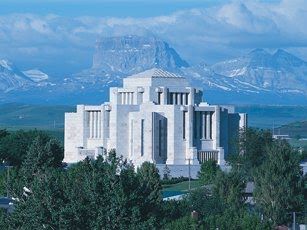
(Wikimedia Commons public domain image)
“President Nelson Gives a Message of Hope at This Troubled Time”
***
Greg Smith, an invaluable contributor to the old FARMS Review and now to Interpreter: A Journal of Latter-day Saint Faith and Scholarship and the Interpreter Foundation, happens also to be a physician up in Alberta, Canada. He is giving excellent counsel regarding COVID-19, the coronavirus disease, on his blog. Some of it is specific to his region in southern Alberta, but much of it is of more general relevance:
Angels in the Architecture: Spinning in infinity
***
This is part of what Brigham Young University is saying to faculty, staff, and students during the current unprecedentedly odd health situation:
4. How do I manage the stress and anxiety I’m feeling about this whole situation?
Like any transition, adjusting to these widespread changes can impact your mental health, but there are things you can do to help you cope effectively until things return to normal:
Recognize any stress reaction you may experience related to an infectious disease outbreak, including…
- Worrying about your health status or the status of your loved ones
- Changes in sleep or eating
- Problems concentrating or focusing
- Increased efforts to avoid, sometimes in unhealthy ways
You can cope more effectively with any stress you might experience by…
- Avoiding excessive media exposure around COVID-19.
- Sticking to a routine.
- Taking care of yourself physically.
- Connecting with others.
- Maintaining perspective.
- See more
If you notice you’re feeling high levels of anxiety that do not go away, or if you are feeling in a low mood on a consistent basis, consider reaching out to CAPS [BYU’s Counseling and Psychological Services]. They have a number of resources that can be helpful and would love to hear from you. You can find more information at caps.byu.edu.
Obviously, of course, people who are not members of the BYU community would need to seek counseling or psychological services elsewhere. If they need them, though, they should not hesitate to search them out. I myself, although I’m not extremely concerned about coronavirus disease (COVID-19), was conscious of an odd malaise back on Thursday and Friday when the full extent of class and worship service cancellations and other efforts at social distancing began to become apparent. I’m relatively asocial in certain ways, so I can easily imagine that others might experience that malaise more acutely than I did or do, and they should feel no embarassment about seeking out help.
Moreover, where we are able we should also be seeking ways to help. This is especially true, perhaps, for Latter-day Saints. As baptized members of the Church we should, even given and within the constraints urged upon us by government and other leaders, be “willing to bear one another’s burdens, that they may be light; . . . willing to mourn with those that mourn; yea, and comfort those that stand in need of comfort, and to stand as witnesses of God at all times and in all things, and in all places that [we] may be in, even until death” (Mosiah 18:8-9). “A man filled with the love of God,” said the Prophet Joseph Smith, “is not content with blessing his family alone, but ranges through the whole world, anxious to bless the whole human race.”
Here’s one simple little example of how a women who is not in the most threatened sector of society has stepped up to help some of those who are:
“Woman Starts Doing Grocery Runs for Older Neighbors to Reduce Their Exposure to the Coronavirus”












